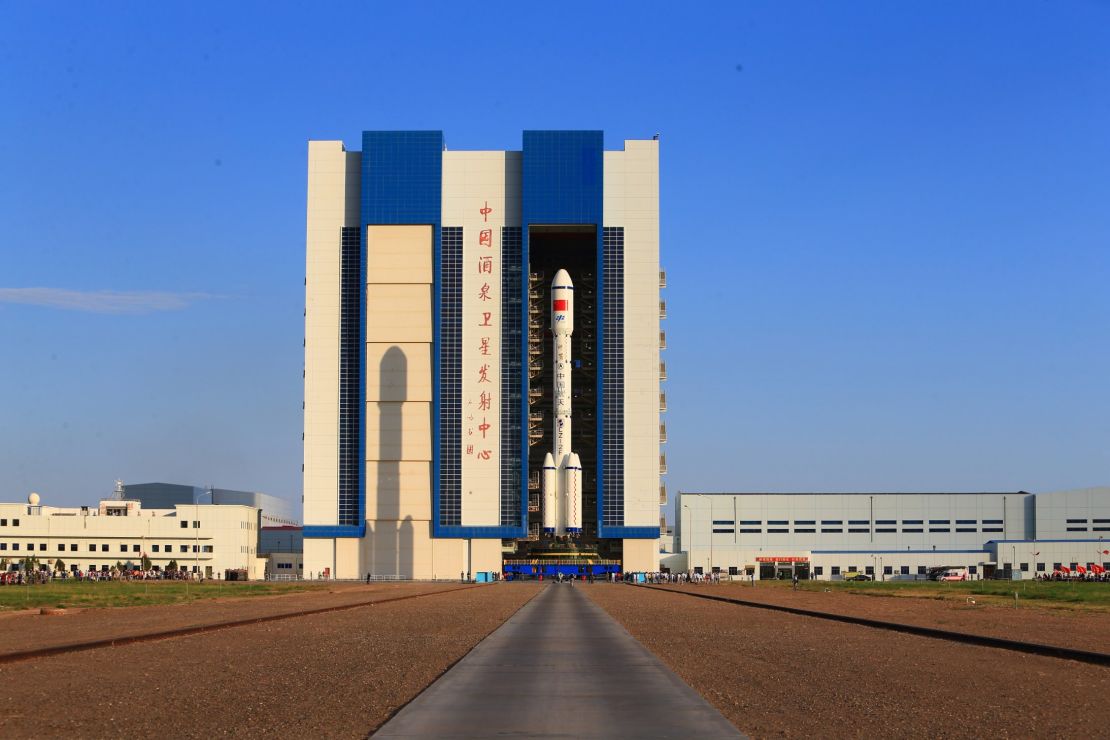Story highlights
Space lab is a precursor to a 20-ton space station
China is pressing ahead with ambitious space plans
China has launched its second space lab, taking one step further in Beijing’s plan to establish a permanent space station.
A Long March 2F rocket blasted off successfully at 10:04 p.m. local time Thursday (10:04 a.m. ET) from the Jiuquan Satellite Launch Center in the Gobi Desert carrying the lab known as Tiangong-2, which translates to “heavenly vessel,” according to state media China Central Television.

Once in space, the Tiangong-2 will maneuver itself into orbit roughly 400 kilometers (about 250 miles) above the Earth, CCTV reported.
A spacecraft will ferry a two-man crew to the lab in October – China’s first manned mission since 2013. The astronauts will remain in the lab for a month, where they will be carrying out experiments related to medicine, physics and biology. It’s China’s longest mission yet.
The Tiangong-2 and its predecessor, Tiangong-1, are prototypes for China’s ultimate goal – a permanent 20-ton space station, which is expected to launch after 2020.
“Tiangong is a precursor test bed of capabilities; building toward the large space station has always been the culminating goal of the Shenzhou program,” said Joan Johnson-Freese, a professor at the US Naval War College specializing in space programs and space security.
Shenzhou-10: China's longest crewed space mission
Rival to ISS
The Chinese space station is expected to be sent into orbit just as the US-led International Space Station goes out of service – making China potentially the only country with a permanent space presence.
European astronauts are already said to be learning Chinese in anticipation.
Since 2011, the US Congress has barred NASA from contact with China’s space program because of national security fears.
China's space ambitions
“Chinese politicians certainly have wanted to work with the United States in space, to show they are an accepted part of the international family of space-faring nations, but with their own space station forthcoming and international partners other than the US willing and lining up to work with them, that imperative decreases,” Johnson-Freese said.
China was late to the space race – it didn’t send its first satellite into space until 1970 – just after the United States put the first man on the moon.
But in the decades since, China has pumped enormous amounts of money and resources into research and training. Future plans include sending a robotic probe to Mars and a potential manned mission to the moon.
“If the US does not change its policies very soon and begin to work with China in space, it will lose whatever leverage it might have in shaping Chinese space plans for the future, ” Johnson-Freese said.


















